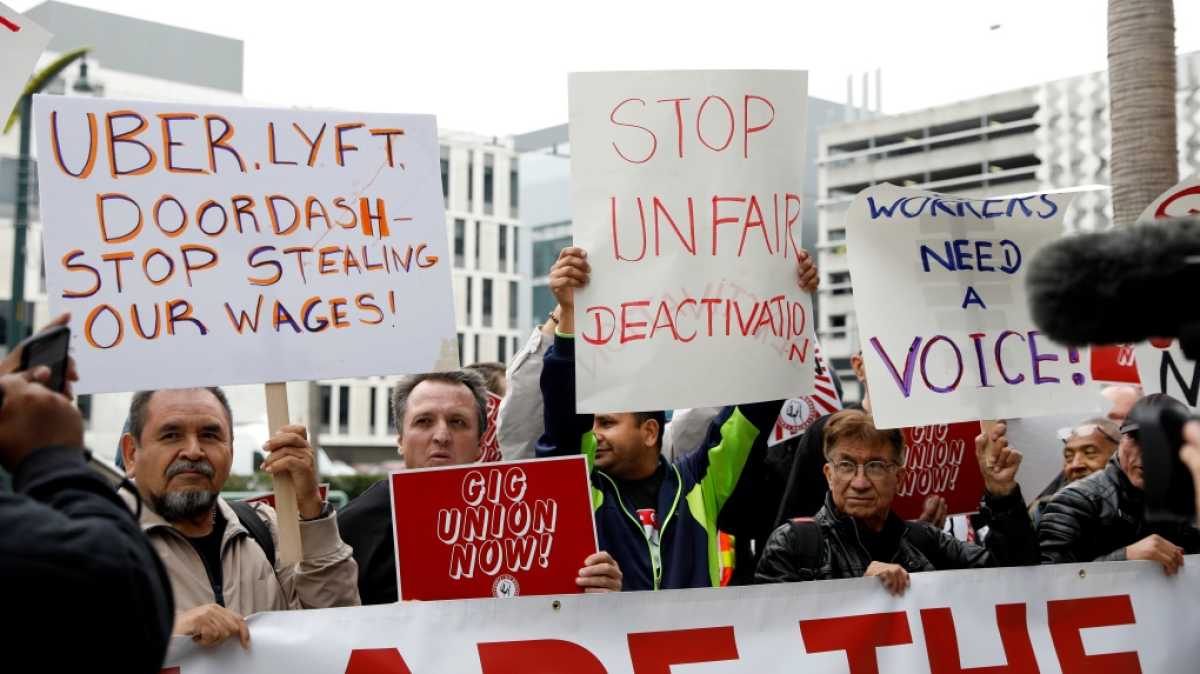Business
Ride-Hailing Workers Stage Global Valentine’s Day Strike for Fair Pay

Thousands of ride-hailing and delivery workers across the United States and the United Kingdom embarked on a coordinated strike this Valentine’s Day, advocating for improved wages and better working conditions.
In the U.S., drivers from Uber and Lyft organized day-long strikes in several major cities, including Chicago, Philadelphia, Pittsburgh, Miami, Orlando, and Tampa, among others. Simultaneously, demonstrations were held at airports in these cities, according to the grassroots organization Justice for App Workers.
Across the pond, delivery drivers working for companies like Uber Eats, Deliveroo, Just Eat, and Stuart in the United Kingdom joined the strike by turning off their apps and refusing deliveries between 5 p.m. and 10 p.m. Leading this effort was Delivery Job U.K., stressing the importance of making their voices heard.
The strikes came in response to ongoing concerns about dwindling earnings for drivers, with many expressing frustration over how little they earn for the hours they put in. One driver shared how his daily pay had significantly dropped in recent months, urging companies to raise their minimum pay rates to ensure sustainability.
Organizers estimated that 3,000 U.K. workers and an unspecified number of U.S. drivers participated in the strike. Despite this, Uber remained confident, stating that past walkouts have had minimal impact on their operations, citing high driver satisfaction levels.
Justice for App Workers has been leading the charge for better compensation, benefits, and an appeals process for driver deactivations. The group likened the current situation for ride-hailing workers to a “mobile sweatshop,” highlighting the need for fundamental changes.
Uber and Lyft have countered claims of low pay by emphasizing their efforts to enhance driver experiences. Lyft recently introduced a new earnings statement that guarantees drivers a minimum share of their fares each week, along with a mechanism for disputing deactivation decisions.
Amid mounting pressures for improved worker rights, the landscape of the gig economy is rapidly evolving, with drivers worldwide pushing for fair treatment and adequate pay for their services.












